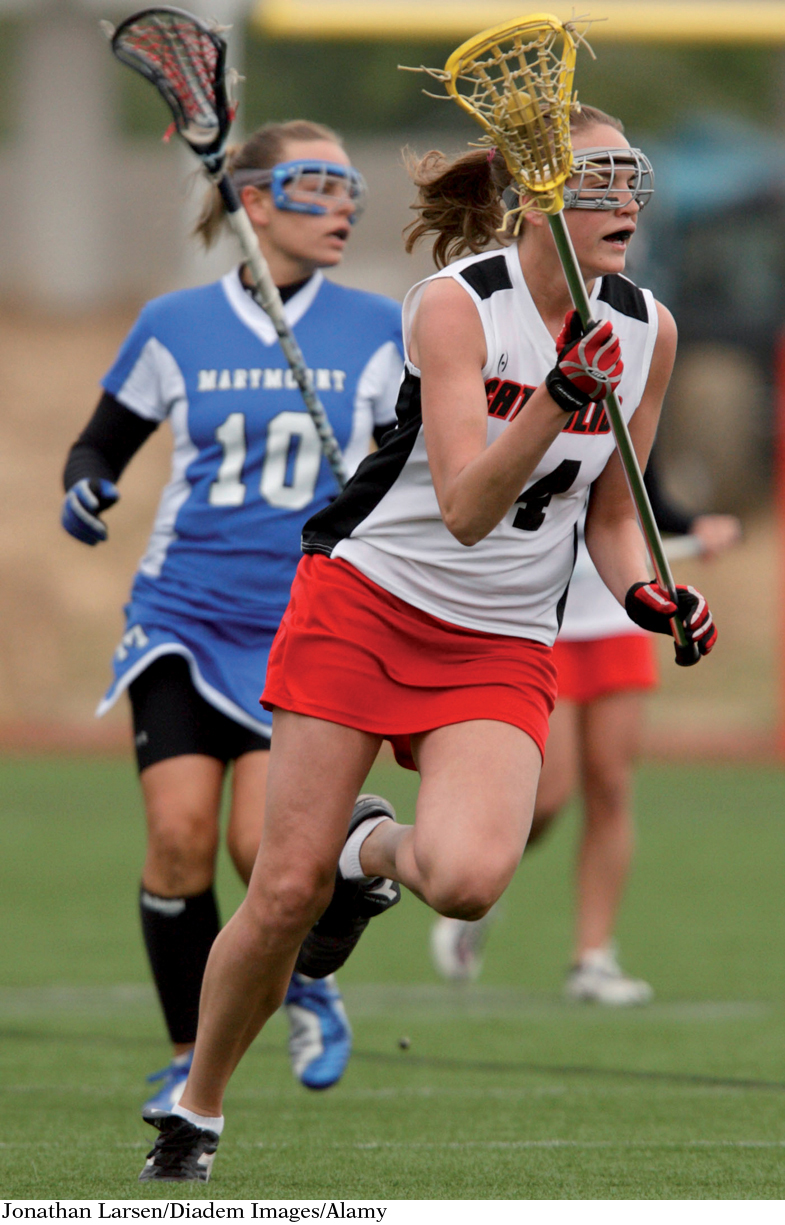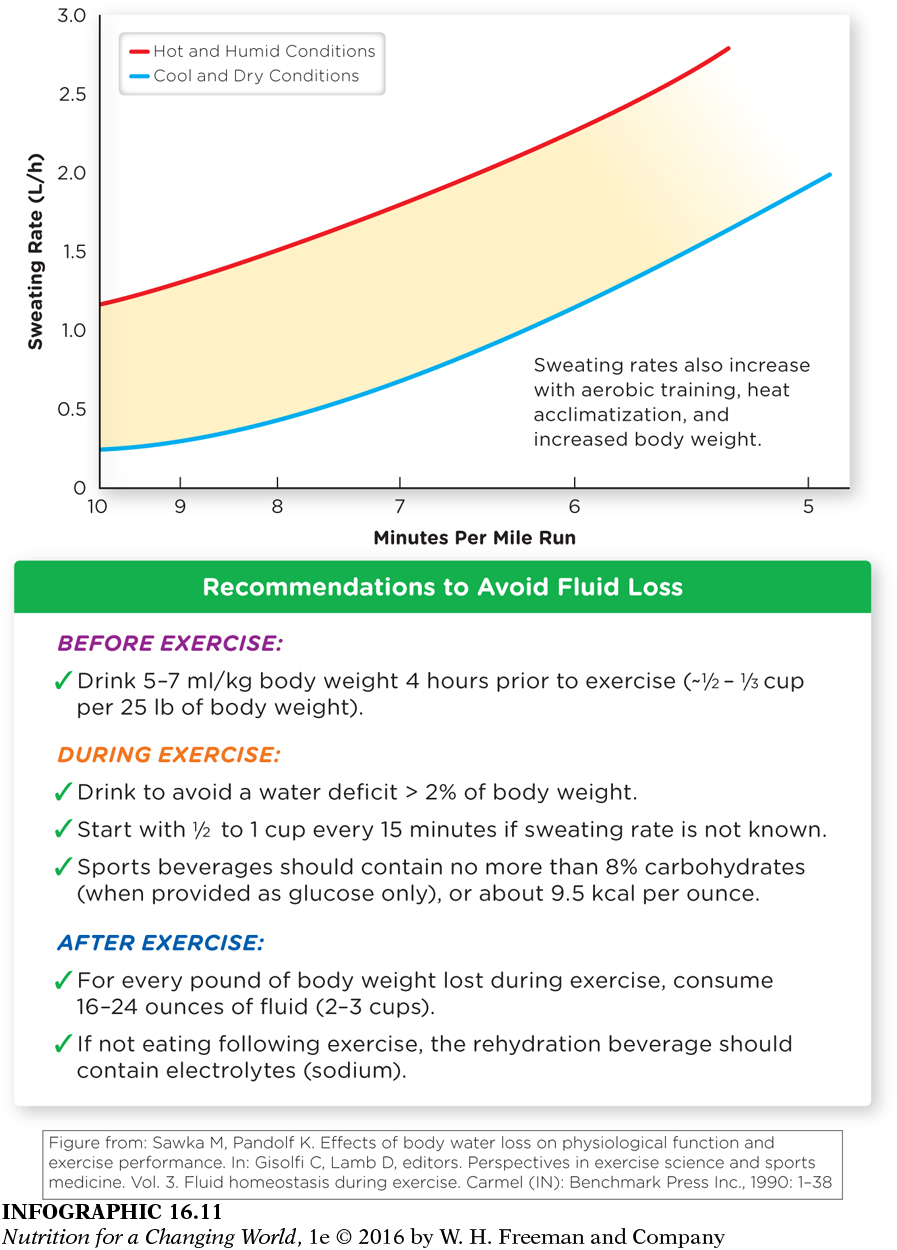HYDRATING THE ATHLETE
DEHYDRATION water deficiency caused by insufficient intake or excessive loss of fluids
The human body is 70% water, and water is essential for proper cell function. Maintaining adequate hydration by drinking water is important because we all lose water through the normal bodily processes of urination, perspiration, exhalation, and defecation, and because dehydration can have dangerous consequences. Athletes lose and need more fluids than the average person does, and even in cool conditions fluid losses through sweating can be quite high during intense exercise. Exercising in hot or humid conditions will greatly exacerbate these losses, and everyone needs to be concerned with staying hydrated when engaging in any type of outdoor physical activity (such as yard work or hiking) in these conditions. Without enough fluids in our body, we can become nauseous, dizzy, lightheaded, and confused.

Sweating rates increase with body weight, exercise intensity, hot or humid conditions, and aerobic exercise training. When engaging in intense exercise at even moderate temperatures, it is impossible to stay hydrated as sweat losses exceed the rate at which water can be absorbed from the gut. The goal of fluid consumption during exercise is to limit fluid loss to 2% of body weight, as fluid losses beyond this compromise aerobic exercise performance. Since it is often impossible to stay fully hydrated during intense exercise, it is of utmost importance to begin every training session or competitive event fully hydrated. To monitor their hydration status, athletes should weigh themselves immediately before and after training to assess how much body weight was lost during the training bout. One pound of weight loss is the equivalent to losing about 16 ounces of water. Individuals can also look at the color of their urine; it should be pale yellow, not bright or dark yellow. (INFOGRAPHIC 16.11)

Question 16.9
 If an athlete lost three pounds of body weight during training, how much fluid should they consume after exercise?
If an athlete lost three pounds of body weight during training, how much fluid should they consume after exercise?
For every pound of body weight lost from fluid during exercise, a person must consume 16 to 24 ounces of fluid (2-
Drinking water too quickly or too frequently while exercising, however, can be dangerous and lead to hyponatremia, a condition in which there is a deficiency of sodium in the blood, a potentially fatal situation given the importance of sodium to normal cell function. Hyponatremia generally occurs only in individuals exercising for extended periods at low intensity and in mild conditions while consuming only water. However, it may also occur when athletes attempt to rehydrate following intensive, prolonged exercise (like running a marathon) by consuming only water and without eating any food.
An effective way to stay hydrated during or after prolonged exercise, without becoming hyponatremic, is to consume sports drinks, which hydrate as well as replenish sodium and other electrolytes that may be lost through sweating. Hubbell, for instance, consumes a sports drink during each training session. Sports drinks also typically contain carbohydrates, which provide fuel for muscle contractions during exercise, and help to replenish glycogen stores during recovery. Sports beverages should contain no more than 8% carbohydrates (when provided as glucose only), or approximately 9.5 kcal per ounce. For the recreational athlete and those who engage in moderate exercise, drinking water is sufficient to stay hydrated.